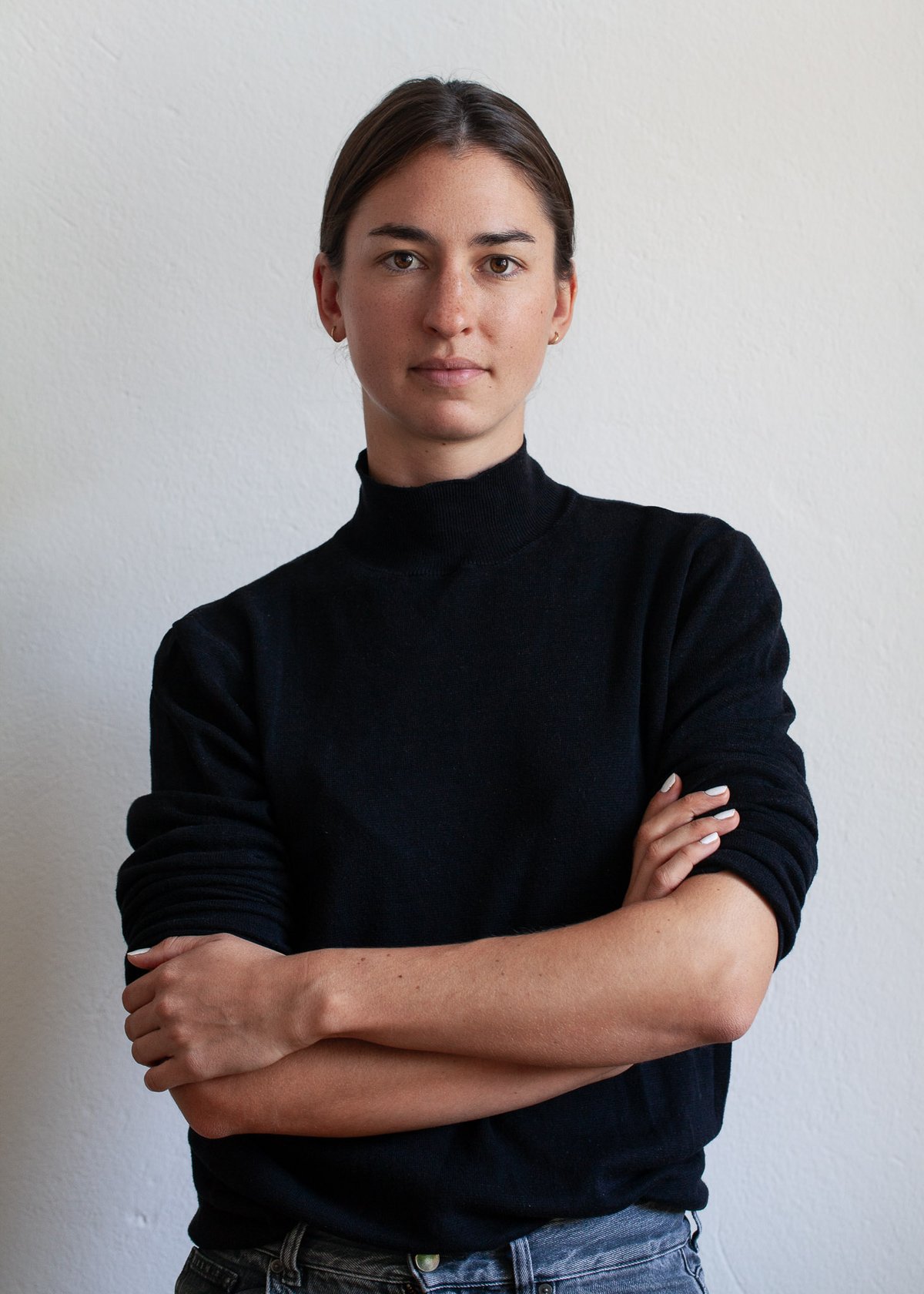Interview with BTU Alumna Kerrin Wendtland (Architektur)
Kerrin Wendtland founded studio.kejo in 2022 together with Joana Schröder, whom she knows from her architecture studies in Cottbus and joint projects. The two implement great projects in the field of interior design and interior architecture, such as in the Bistro Pears of the Jewish Campus or in international villas. Examples can be found on your website and on Instagram at studio.kejo.
Hello Ms. Wendtland, what fascinates you about architecture and how did you come to study in Cottbus?
What particularly excites me about interior/architecture is the constant challenge of designing living spaces for people that meet their individual needs and ideas. Every project is unique and requires an individual approach. The design of living spaces, workplaces or public buildings requires the interplay of various factors such as aesthetics, functionality, sustainability and technical aspects. This diversity and complexity always offer new opportunities to find creative and innovative approaches. This creative process of discussing ideas, developing visions and working together on new concepts is what fascinates me most about working as an interior/architect. I became aware of the BTU through a friend who had already started his architecture studies a semester earlier. Although, as a native of Berlin, I was initially hesitant to move to another city for my studies, my opinion changed after my first visit to Cottbus - more specifically, during my first tour of the studio buildings. It became clear to me that these great spaces offered a place where I could develop creatively.
What was your experience at the BTU like and what tips would you give students on what to look out for during their studies?
Looking back, I can say that my experience at BTU was mostly positive. One of the most important things I learned as an independent is the importance of having an extensive network. That's why I would like to give all students the tip to take the opportunity to build up such a network already during their studies. This can not only lead to long-lasting friendships, but also to professional opportunities.
How did it come about that you founded your own architecture studio with studio.kejo and what would you recommend to alumni who would like to follow your example?
After graduating with my bachelor's degree, I started working in an interior design firm right away. It was a classic 9-to-5 job. After five years, I came to the conclusion that working creatively with set hours was not compatible for me. The expectation of being creative at the drop of a hat and working in rigid structures felt increasingly limiting. The possibility to determine my own working hours and even location and to be flexible was one of the decisive factors that prompted me to take the step into self-employment and start my own studio. From my point of view, this step into self-employment requires a high degree of self-discipline. Although I have often heard the saying "self and constantly", there is a kernel of truth in it. Finding a clear separation between work and free time may not sound particularly difficult at first, but even after two years of self-employment, this still presents me with challenges, so that the laptop ends up in my vacation luggage every now and then. For a step into self-employment, I can therefore only recommend to pay attention to a healthy amount of free time and working time.
You founded studiokejo together with BTU alumna Joana Schröder. Could you say something about the importance of good networks and contacts in your industry?
As mentioned before, a good network and contacts play a significant role in interior/architecture. Not only in acquiring new projects, but also in the course of implementing a project. For example, having a reliable portfolio of trustworthy and dependable construction contractors is extremely valuable - especially in times of a shortage of skilled labor. So you can never start early enough to build a well-functioning network that is as broad as possible.
What do you miss most from your time studying in Cottbus?
What I miss most about studying architecture as such is the completely unbiased approach to designing new concepts and designing with unrestricted freedom, regardless of any financial limits.
Kontakt
Stabsstelle Friend- and Fundraising; Alumni
T +49 (0) 355 69-2420
daniel.ebert(at)b-tu.de

